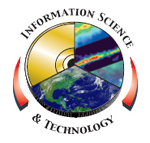
Please Note: The content on this page is not maintained after the colloquium event is completed. As such, some links may no longer be functional.
Kanna Rajan 
What I Learned from Commanding Spirit and Opportunity: Lessons Learned from Deploying MAPGEN for NASA's Mars Exploration Rover Mission
Wednesday, October 20, 2004
Building 3 Auditorium - 3:30 PM
(Refreshments at 3:00 PM)
Dr. Kanna Rajan, will talk about "What I Learned from Commanding Spirit and Opportunity: Lessons Learned from Deploying MAPGEN for NASA's Mars Exploration Rover Mission." In September 2001, the MER mission chose to use MAPGEN, a ground based decision-support system to help command Spirit and Opportunity. On Jan 15th 2004, MAPGEN became the first AI based system to actually command a vehicle on the surface of another planet when the first surface plan for the Spirit rover was successfully built radiated and executed on-board. This talk is the tumultuous story of MAPGEN's infusion process and the lessons we took away in doing so.
The Mixed-Initiative Activity Plan GENerator (MAPGEN) combines a rich formalism of a flexible temporal constraint network with a familiar front end used by mission operations personnel at JPL, to command the two MER rovers. Mission operators with the help of science personnel, use MAPGEN on the ground, on the two rovers to build a complex conflict free plan that is packaged and uplinked to command Spirit and Opportunity on the surface of Mars. This generative planner, automatically enforces mission and flight rules encased in a declarative model, as well as constraints imposed to encode the scientific intent of the observations for that Sol, requiring to being done on the surface of the Red Planet. MAPGEN continues to be a part of the mission-critical uplink command cycle for the Mars Exploration Rovers.
Kanna is a Senior Research Scientist and a member of the management team of the the Autonomy and Robotics Area at NASA Ames Research Center Moffett Field, California. He is one of the principals of the Remote Agent Experiment (RAX) which designed, built, tested and flew the first AI based closed-loop control system on a spacecraft. The RA was the co-winner of NASA's 1999 Software of the Year, the agency's highest technical award (http://ic.arc.nasa.gov/projects/remote-agent/).
His interests are in Planning/Scheduling, modeling and representation for real world planners and agent architectures for Distributed Control applications. Prior to joining Ames, he was in the doctoral program at the Courant Institute of Math Sciences at NYU. Prior to that he was at the Knowledge Systems group at American Airlines, helping build a Maintenance Routing scheduler (MOCA) which continues to be used by the airline 365 days of the year.
MAPGEN has been awarded NASA's 2004 Turning Goals into Reality award under the Administrators Award category, a NASA Space Act Award, a NASA Group Achievement Award and a NASA Ames Honor Award. Kanna is the recipient of the 2002 NASA Public Service Medal and the First NASA Ames Information Directorate Infusion Award also in 2002. On Oct 12th 2004 at JPL, he will receive an Exceptional Service Medal for the successful deployment of MAPGEN for MER.
He is the Co-chair of the 2005 Intnl. Conference on Automated Planning and Scheduling (ICAPS), to be held in Monterey California (http://icaps05.icaps-conference.org/ ) and the chair of the Executive Board of the International Workshop on Planning and Scheduling for Space.
IS&T Colloquium Committee Host: Jacqueline LeMoigne
